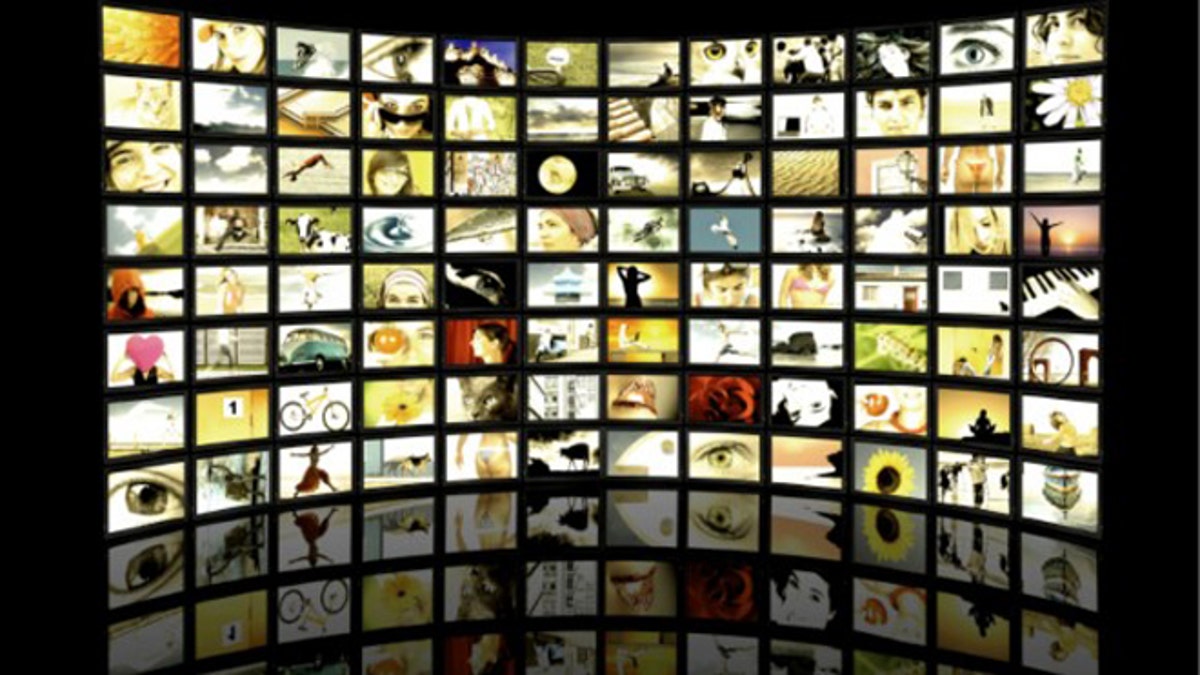
One hasn't really experienced deprivation until one has had to deal with a child cut off from their favorite TV shows.
It was such an occasion of acute disappointment from a child unable to see Nickelodeon that really brought home the changing fortunes of broadcast TV, Hollywood, cable and satellite providers and the Internet. During a pitched battle over carrier fees, Viacom pulled its programming, including Comedy Central, Nickelodeon, and VH1, from DirecTV last week. An unhappy child demanded that the parental unit in charge provide an explanation.
As an adult who has longed for entertainment to be available 24/7, now that it's arrived I find myself wondering, Do we now have too much TV?
I explained that the companies were fighting over how much DirecTV should pay for the stations, as well as whether it also should be allowed to offer the stations online on devices like the iPad. The result was this "blackout" negotiating tactic. Pay up, or your kids will make summer vacation a living hell.
Fortunately, Viacom and DirecTV did reach an agreement at the end of last week, returning iCarly and happiness to our home. The winner by all accounts was not my child, but rather DirecTV, which now will include Viacom's programming on its TV Everywhere service that delivers shows online to the screens of tablets and PCs.
This is a critical recognition that more people are watching TV not on TVs, but on mobile devices connected to the Internet. It pits Comedy Central and its ilk directly against the online likes of YouTube. (Something Viacom has not failed to notice -- it's still embroiled in a legal battle with YouTube's owner, Google, over potential copyright violations.)
For a kid, it's media heaven: TV all the time, everywhere! When I was a kid, there were no 24-hour children's channels. I would have considered such a future to be utopia. Now I wonder if it's really a dystopia. As an adult and technologist who for years has longed for such entertainment to be available 24/7, now that it's arrived I find myself wondering, Do we now have too much TV?
DirecTV's TV Everywhere joins similar services from cable operators, such as Time Warner. Then there are the streaming online services like Netflix and Vudu and Amazon Instant Video. Not to mention Hulu Plus, which notes it has all 37 seasons of Saturday Night Live. I've got cable channels on my iPad, YouTube on my phone, DVR recordings on TV. I can even watch movies on my bedside alarm clock, the Sony Dash.
Who has time to watch all this TV? Isn't this just simply too much video to digest?
I feel like the kid who got his dream job working at Ben and Jerry's and now I've made myself sick stuffing my face with Triple Caramel Chunk.
This revelation is personally upsetting. I've spent years testing the latest televisions, ferreting out the best and finest movies and methods of distributing them (remember laser discs?). And now that we've reached a high-definition, wall-sized TV nirvana of 24/7 video entertainment I've concluded that it's too much.
Worse, it may be too much for the old advertising/subscription models to sustain. With a fragmented TV market, how can big-money ads reach a mass market any more? (Major sporting events being the one exception.) In the past, big budget shows had those big budgets and big stars thanks to big ad revenue. That's been slowly drying up for years, and the TV everywhere model is either going to sink it for good or save it from total bankruptcy. DirecTV and Time Warner think the online option will save the old model. Show creators like Viacom aren't so sure.
Notice that these concerns ignore the issue of whether TV and video stunts a person's intellectual and emotional development. With such stimulating fare as The Bachelorette, Mrs. Eastwood, and Keeping Up With the Kardashians on the air, how could there be any debate?
Be that as it may, these changes in the way video is delivered are changing the way viewers behave. Appointment viewing -- when the nation watches one popular prime-time show at the same time -- has all but disappeared. Who cares when you can watch it online at work? Indeed, people are so saturated by video they've started watching adult material in public, like on airplanes.
Some technology advocates have seen the multiple venues for video as opening up new avenues for new talent. I think that's a common, but apocryphal pipe dream. The reason: There just aren't that many truly talented directors, script writers and actors out there. It's nice to think that there are, but all evidence points to the contrary.
To wit, with all these channels, shows, videos, and decades of old material, one can in all honestly look at a guide with thousands of stations available and still be able to say without a hint of humor, "There's nothing to watch on TV."
I guess I'll have to read an e-book instead.
Follow John R. Quain on Twitter @jqontech or find more tech coverage at J-Q.com.








































